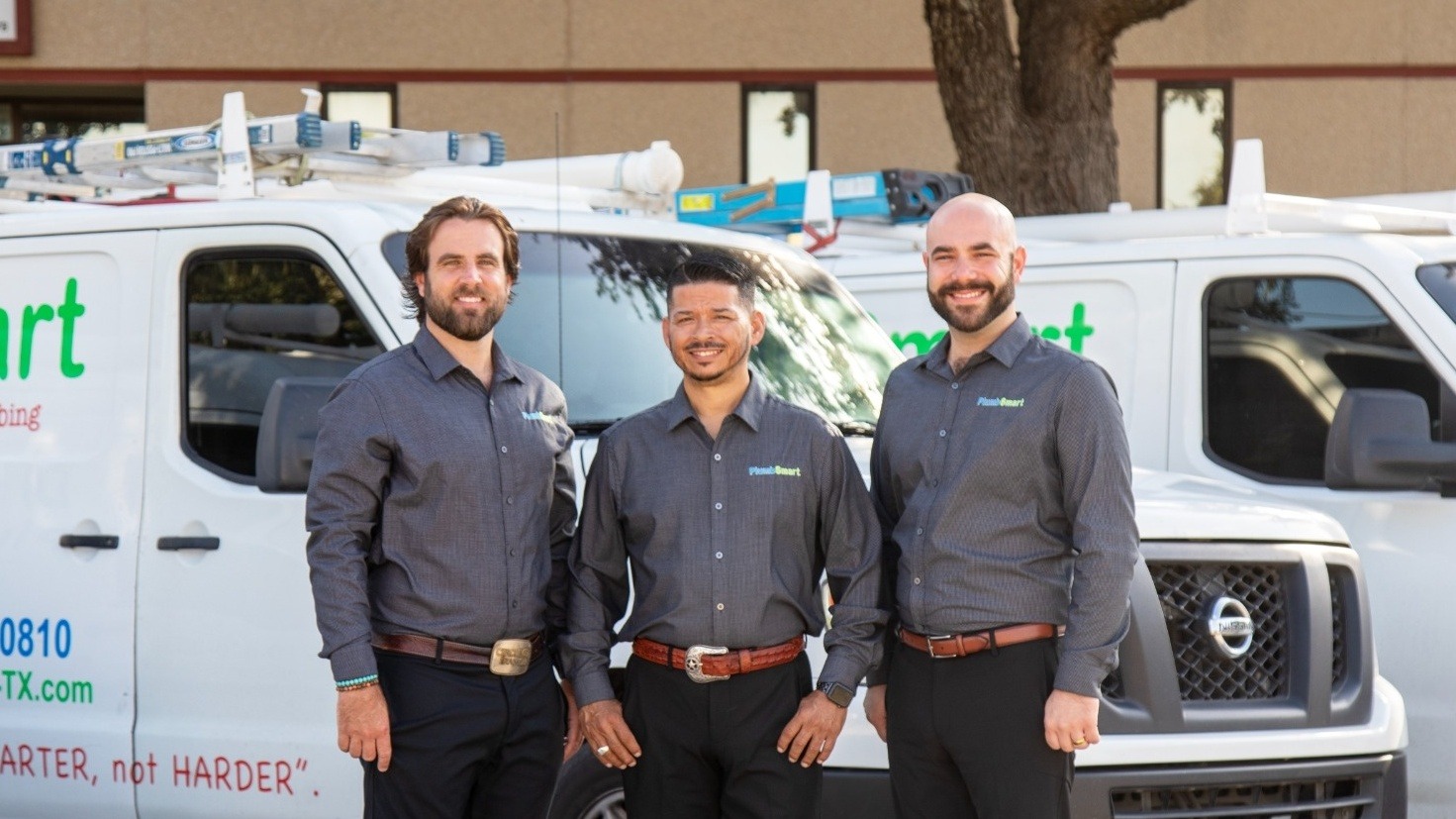The hot-water moment that decides your whole morning
If you’ve ever run the dishwasher while someone’s showering and suddenly the hot water feels… moody, you already understand why tankless water heaters are tempting. In San Antonio, TX, a lot of homes see big swings in daily hot-water demand: quick morning showers, laundry, evening dishes, and a hand-wash or two in between. A tankless unit can keep up better than an aging tank, but choosing electric vs. gas is where homeowners get stuck. The “best” one isn’t universal. It depends on your home’s utilities, how many fixtures you run at once, and how much maintenance you’re willing to stay ahead of.
What tankless really means in a real house
A tankless water heater is “on-demand” hot water: it heats water only when you open a hot-water tap instead of storing hot water in a tank all day. When a sensor detects water flow, the unit turns on and heats water as it passes through a heat exchanger (the part that transfers heat into the water).
Here’s the practical difference:
- Gas tankless units burn natural gas or propane and are rated in BTUs (British Thermal Units, a measure of heat output).
- Electric tankless units use heating elements and are rated in kW (kilowatts, a measure of electrical power).
Both can deliver endless hot water in theory, but they still have a maximum output. That output is measured as GPM (gallons per minute), meaning how much hot water the unit can make at a given “temperature rise” (how many degrees it needs to heat incoming cold water to reach your set temperature).
Where homeowners get burned by the wrong choice
Most tankless regrets come from the same few situations, and they’re usually avoidable.
The first is undersizing. People hear “endless hot water” and assume any tankless can handle two showers and the kitchen sink at the same time. But if your home needs 5 GPM of hot water during peak use and the unit can only produce 3 GPM at your needed temperature rise, you’ll feel it as lukewarm water, temperature swings, or a unit that seems to “give up.”
The second is utility mismatch. Electric tankless can require high-amperage circuits and enough space in your electrical panel. Gas tankless may need a properly sized gas line, safe venting to the outdoors, and a condensate drain for high-efficiency models.
The third is hard-water scale. Mineral buildup can choke flow sensors and coat the heat exchanger, which makes the heater work harder and can shorten its life. Hard water doesn’t always cause immediate failure, but it’s one of the most common reasons tankless performance slowly slides downhill.
Finally, there’s the “install surprise”: old shutoff valves that won’t fully close, undersized supply lines, cramped closets that aren’t vent-friendly, or a water heater location that makes service awkward. Tankless is compact, but it still needs breathing room and access for maintenance.
A simple checklist to pick electric or gas with confidence
Use this quick reality-check before you fall in love with a specific model:
- Count simultaneous hot-water uses: showers, dishwasher, laundry, kitchen faucet, and any high-flow fixtures
- Check your incoming water temperature: colder inlet water needs more heating power to reach your set temp
- Confirm your utility strengths: available gas line capacity and vent path, or electrical panel capacity and wiring
- Decide where the unit will live: garage, utility room, closet, attic, or exterior wall, and whether that spot can be serviced safely
- Plan for maintenance: flushing (descaling) frequency and how you’ll handle hard-water buildup
- Think about comfort features: recirculation (a pump system that keeps hot water closer to taps) if you hate long waits
- Budget for the “extras”: gas line upgrades, venting, electrical upgrades, water softening, and permits if required
Pressure, flow, and the “weak hot water” myth
A lot of homeowners say, “My pressure is fine, but the hot side feels weak.” Pressure and flow aren’t the same thing. Water pressure is the force behind the water (measured in PSI). Flow is how much water comes out (measured in GPM). You can have high pressure but still have low flow if something is restricting the pipe, valve, or heater.
Tankless heaters care about flow more than pressure, because flow is what triggers the unit to turn on and determines whether it can keep water hot while you’re using it. Fixture flow rates matter too. For example, WaterSense-labeled bathroom faucets use a maximum of 1.5 GPM, compared to an older federal standard flow of 2.2 GPM, which changes how much hot water your home actually demands during peak use (EPA WaterSense faucet guidance). Low-flow fixtures can make a smaller tankless feel “stronger” because the demand is lower.
Now for the hard-water reality: minerals like calcium and magnesium can leave behind scale inside plumbing and water-heating equipment. That scale acts like insulation on the heat exchanger and can also reduce internal water pathways, which lowers performance over time. In San Antonio, TX, the local utility notes that typical water hardness ranges around 15 to 20 grains per gallon, which is plenty hard enough to cause scale if it’s not managed (SAWS water quality FAQ). If you want tankless to stay efficient, you have to treat scale prevention like part of ownership, not an optional add-on.
When an upgrade uncovers bigger plumbing problems
A tankless install has a way of exposing weak links in a plumbing system, especially in older homes.
If shutoff valves won’t fully close, don’t force them until the handle snaps. A stubborn valve might be corroded internally, and the “quick twist” can turn into a leak behind the wall. If supply lines are old or stiff, replacing them during the install is often smarter than reusing them and hoping for the best.
On the gas side, the big issue is gas line sizing. A tankless heater can demand a lot of fuel quickly. If the line is undersized, you may get ignition failures, error codes, or inconsistent hot water. Homeowners sometimes try to “solve” this by raising the temperature setting, which is the wrong move. It can increase scald risk and won’t fix a fuel delivery problem.
On the electric side, the surprise is usually the electrical service capacity. Electric tankless units can need multiple dedicated breakers, and if the main panel is near its limit, you’re looking at an upgrade. Running a unit on inadequate wiring is unsafe and can lead to nuisance trips or worse.
Tankless can also bring out plumbing noises like water hammer (a loud bang caused by sudden flow changes) when fast-closing valves shut the water down quickly. Don’t ignore it. Repeated hammer can stress fittings and valves.
And if you notice gurgling drains or sewer smells after a big plumbing change, avoid dumping harsh chemicals into the drain trying to “fix it.” That can damage pipes and doesn’t solve the root problem, which may be a partial blockage or venting issue.
How to tell if your tankless is installed and running correctly
A good installation is quiet, stable, and boring in the best way. Right after installation, watch for these signs over the first few days of normal use.
Start with a leak check: look around the isolation valves, hot and cold connections, and any visible fittings. Even a slow drip matters, because tankless units often sit above or near finished surfaces.
Run a real-world test: shower while the dishwasher or washing machine runs. You’re checking for temperature stability, not just whether the water gets hot once.
If it’s a gas model, pay attention to venting and airflow. Venting is the piping that safely moves exhaust gases outdoors, and it must be installed exactly to manufacturer requirements. If the unit is condensing (high-efficiency models that extract extra heat), it also needs a properly routed condensate drain so acidic water from condensation can be disposed of safely.
For electric models, listen for repeated clicking or rapid cycling. A little ramp-up is normal, but constant on-off behavior can point to flow issues, sensor problems, or sizing mistakes.
One more smart check: look for markings on components that contact drinking water. Materials used in potable water systems should meet health-effect requirements, such as those covered by NSF/ANSI 61 (NSF overview of Standard 61). You’re not being picky, you’re making sure the system is designed for water you bathe in and cook with.
When calling a plumber actually saves you money
Tankless water heaters are one of those upgrades where professional installation isn’t just about convenience, it’s about preventing the expensive “almost right” setup that causes years of headaches.
If you’re choosing between electric and gas, a plumber can help confirm whether your home is truly ready for the option you want, or whether you’re about to trigger a chain of upgrades you didn’t budget for. Proper sizing, correct venting, safe gas supply, and smart placement all matter just as much as the brand on the box.
If you’re leaning tankless, PlumbSmart can help with a tankless water heater installation that’s sized to your household’s real usage, not a guess. And if you want that “stays like new” performance, scheduling tankless-friendly water heater maintenance helps prevent scale buildup and catch small issues before they become failures.
Because hard water is such a common factor locally, a water softener installation can be the quiet upgrade that protects your tankless heater, fixtures, and appliances at the same time.
The decision comes down to three smart moves
Electric vs. gas tankless isn’t about which technology is “better.” It’s about what fits your home and your habits.
First, match the heater to your real demand: know how many hot-water uses happen at the same time and size for that flow. Second, choose reliability over wishful thinking: if your utilities can’t support the model without upgrades, it’s not the right pick yet. Third, plan for your water conditions: hard water and scale don’t care what brand you bought, so build maintenance and protection into your decision from day one.




